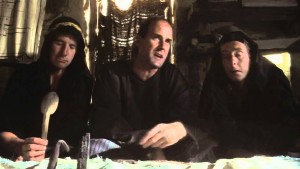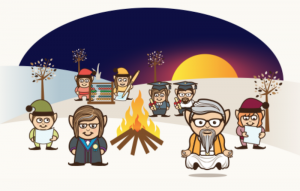
In February 2016, Trisha Greenhalgh and 75 senior academic colleagues from 11 countries wrote a letter calling on the British Medical Journal to rethink their decision to view qualitative research as “low priority,” “unlikely to be highly cited,” “lacking practical value,” or “not of interest to our readers”.
Researchers from McGill Qualitative Health Research Group helpfully shared their rejection letter on Twitter on 30 Sep 2015. Here’s their tweet and an excerpt from the BMJ response to their paper:
BMJ review: Sorry but qualitative studies are an extremely low priority Our research shows they are not widely accessed, downloaded or cited
— MQHRG (@mqhrg) September 30, 2015
Thank you for sending us your paper. We read it with interest but I am sorry to say that qualitative studies are an extremely low priority for The BMJ. Our research shows that they are not as widely accessed, downloaded, or cited as other research.
We receive over 8,000 submissions a year and accept less than 4%. We do therefore have to make hard decisions on just how interesting an article will be to our general clinical readers, how much it adds, and how much practical value it will be.
Here in the woodland we’ve been mulling over this matter for a few weeks. We have been rereading many of the qualitative research blogs that we’ve published, especially on the Mental Elf and the Social Care Elf and we have found ourselves asking: “What has qualitative research ever done for us?”
On Wednesday 13th April (1500-1600 BST) we will be hosting an expert webinar to bring together people from the world of mental health qualitative research, to share their experiences, celebrate the achievements of specific studies/programmes, and discuss the challenges currently facing the field.
We would like you to be involved in this discussion, which starts today and will run (we hope) for a few weeks. Listed below are the questions we will be asking our expert panel on April 13th.

What has qualitative research ever done for us?
Questions for our #ElfCampfire discussion
- Why is qualitative research considered to be less important than quantitative research?
- What is the most important “landmark” qualitative research study in mental health?
- How can we weed out unreliable or irrelevant qualitative research?
- What is mixed-methods research and how can it help us improve mental health care?
Please share your thoughts and experiences with us by adding a comment at the end of this blog or by tweeting to @Mental_Elf. Feel free to ask questions that you would like us to put to the panel.
Our expert panel
We are delighted to have convened a group of service users, researchers and practitioners with a wealth of experience about mental health qualitative research:
- Sarah Carr, Associate Professor of Mental Health Research, Middlesex University
- Michael Coffey, Associate Professor, Public Health, Policy and Social Sciences, Swansea University
- Steve Gillard, Reader in Social and Community Mental Health, St George’s University
- Trish Groves, Head of Research, BMJ
- Ben Hannigan, Reader in Mental Health Nursing, Cardiff University
- Sarah Knowles, Research Fellow, University of Manchester
- Tara Lamont, Scientific Advisor, Health Services and Delivery Research (HS&DR) Programme
- Eimear Muir-Cochrane, Professor of Nursing, School of Nursing and Midwifery, Flinders University
- Steven Pryjmachuk, Professor of Mental Health Nursing Education, University of Manchester
- Alan Simpson, Professor, School of Health Sciences, City University
- André Tomlin (Chair)
- Douglas Badenoch (National Elf Service)
The expert video webinar will be live broadcast and free to view at 3pm UK time on Wednesday 13th April. Simply join us around the campfire to watch the broadcast, or tweet your comments and questions to #ElfCampfire.

Campfire video webinars are live broadcast expert discussions that are free to view on the web. The archive of previous campfires is for members-only.
Links
What has qualitative research ever done for us? Elf Campfire, 13 Apr 2016.
An open letter to The BMJ editors on qualitative research.
Photo credits

@Mental_Elf A good qualitative study in policy arena often gets good result. And not like quants don’t have issues https://t.co/Wn53rz3QkE
What has qualitative research ever done for us? #ElfCampfire https://t.co/TdMnLGnO4G #MentalHealth https://t.co/N1E2AYgQMx
Interesting live webinar qual #mixed methods debate at 3pm GMT +1hr. https://t.co/H9GjVFCXOx
Tracey xx
Thank yoooou!
What is the most important “landmark” qualitative research study in mental health? https://t.co/njtokGnEIg #ElfCampfire
@Mental_Elf Rosenhan – Being sane in insane places. Goffman – Asylums. Need I continue?
@Mental_Elf Research operates by drip-feed. Asking for most important is problematic, sensationalist #ElfCampfire, but Menzies Lyth is one.
@Mental_Elf The studies into digital prevention within mental health could be some of the most important in over 20 years!
This stings a bit: “What has qualitative research ever done for us?” https://t.co/iPCPPDsPVN
RT @Mental_Elf: What has qualitative research ever done for us?
Don’t miss this!
#ElfCampfire 13/4/16 3pm
https://t.co/vXwUMIoGZn https://t…
Please share your thoughts and experiences of #QualitativeResearch here: https://t.co/njtokGnEIg #ElfCampfire
Without good qualitative research, you can’t know what quantitative data to collect https://t.co/MQniuEfa0L
Is the “quantitative versus qualitative” debate a false dichotomy? #MentalHealth #Research https://t.co/njtokGnEIg #ElfCampfire
@Mental_Elf of course it is! Different methods answer different questions. All research should be conducted robustly and transparently
@Mental_Elf yes, but qualitative research and finding out how and why things work so undervalued so need to stick up for it constantly.
@LucyACTerry @Mental_Elf Agree yes. But > self-critical look at the science/strengths/weaknesses needed & teach others about this too
@dnunan79 @Mental_Elf Yes- agree- that is how you value something, rather than doing it poorly!
@LucyACTerry @Mental_Elf @LucyACTerry @Mental_Elf something we are tackling on our MSc @OxEBHC – this week in fact!
@zortea_tiago @EmmaLNielsen sounds like our topic for the next ECRSAS journal club! https://t.co/IFHEsRCXIz
Yes it is. Most health research employs mixed methods to some degree. @Mental_Elf #mentalhealth #research https://t.co/L5w66xFpCQ
How can mixed-methods research help us improve mental health care? https://t.co/njtokGnEIg #ElfCampfire
Thanks @DrDanielTurner @dnunan79 @LucyACTerry @OxEBHC 6 Qs to ask when reading qualitative research #ElfCampfire https://t.co/szm61u7u4s
@Mental_Elf @DrDanielTurner @LucyACTerry @OxEBHC good place to start. We have developed this @CebmOxford https://t.co/tmtKcBKIyF
@Mental_Elf @DrDanielTurner @dnunan79 @OxEBHC Thx, useful- I liked @NPCthinks on this too https://t.co/txRxitAsDZ p3-4
@Mental_Elf @DrDanielTurner @dnunan79 @OxEBHC Prev link 2 @NPCthinks gives 5 principles: Valid, Reliable,Confirmable,Reflexive,Responsible
10 questions to help you make sense of #QualitativeResearch
Free @CASPUK checklist
#ElfCampfire
https://t.co/q5hRUYLqvo
This was a good book about quality in qualitative research @mental_elf @drDanielTurner #ElfCampfire https://t.co/rNrkdU4Aju
RT @Mental_Elf: Don’t miss: What has qualitative research ever done for us? #ElfCampfire https://t.co/njtokGnEIg
What has qualitative research ever done for us? #ElfCampfire https://t.co/aeUyufWFTG via @sharethis
Qual researchers – remember #BMJnoQual – @Mental_Elf is seeking a twitter conversation https://t.co/AUXpmv3fvt https://t.co/dSNkBbp4Ee
@jacki_liddle @Mental_Elf narratives, inquiries & case studies have significantly progressed care in the field of MH https://t.co/VW6GDixMKb
What has qualitative research ever done for us? #ElfCampfire https://t.co/UxA4IWvULe via @sharethis
What has qualitative research ever done for us? #ElfCampfire https://t.co/ZlhEjfePZl via @sharethis
https://t.co/vLfkPoBx6D
it has done a lot, cos we work with people, not numbers!
RT @Mental_Elf: What has qualitative research ever done for us?
#ElfCampfire
Wed 3pm
https://t.co/vXwUMIoGZn https://t.co/wcgjhN4wU5
Why is qualitative considered less important than quantitative research?
#ElfCampfire https://t.co/vXwUMIoGZn https://t.co/eyj1MhvaHu
@Mental_Elf Because no one can give a satisfactory explanation as to how “qualitative research” differs from “anecdotes” @real_peerreview
@Mental_Elf @real_peerreview I know this because I’ve done Qualitative research on the subject (aka – I asked a few professors)
How can we weed out unreliable or irrelevant qualitative research?
#ElfCampfire https://t.co/vXwUMIoGZn https://t.co/VUjc2T5Mja
@Mental_Elf It is an important question. However, would you ask it of quantitative research?
@Mental_Elf Trying to restart the paradigm wars?
@stevepclayton I’m asking about qualitative research because tomorrow at 3pm we have an #ElfCampfire on that topic https://t.co/vXwUMIoGZn
@Mental_Elf I know, and would be there if didn’t have prior commitment, here’s some relevant reading though https://t.co/La0Lux00tz
@steph_coen You’re reading that into my question! :-) We’ve an #ElfCampfire tmrw on qualitative research https://t.co/vXwUMIoGZn Hence the Q
@Mental_Elf Haha! :) Sorry! I’m new 2 this whole #ElfCampfire thing. Just stumbled upon and thought I’d jump in. Didn’t realize it’s tmrw!
@d_galasinski We’ve #ElfCampfire tmrw on qualitative research https://t.co/vXwUMIoGZn so I’m asking specifically about that today :-)
RT @Mental_Elf: Watch our expert discussion at 3pm
Qualitative Research
#ElfCampfire live video
https://t.co/vXwUMIoGZn https://t.co/pDz…
RT @Mental_Elf: 3pm today!
What has qualitative research ever done for us?
Expert webinar #ElfCampfire
https://t.co/vXwUMIoGZn https://t.co…
What has qualitative research ever done for us? asks @Mental_Elf Webinar starting shortly https://t.co/bJ9rTngprM https://t.co/rtjsfEL71D